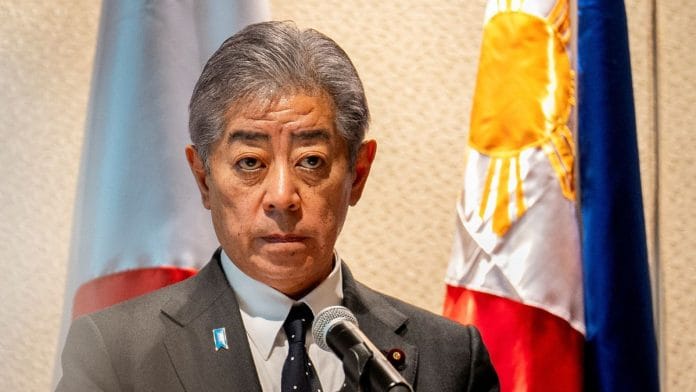New Delhi: Japan’s Foreign Minister Takeshi Iwaya has dismissed a report linking Japan to trafficking of fentanyl to the US amid ongoing tensions between Beijing and Washington over the fentanyl crisis.
He emphasised that the issue will not “impact Japan-US relations or trade talks”.
Fentanyl, a synthetic opioid, is a major driver of the US opioid crisis, contributing to tens of thousands of overdose deaths annually. The US-China fentanyl conflict stems from allegations that Beijing insufficiently regulates exports of precursor chemicals for fentanyl, with US officials claiming Chinese firms knowingly sell these precursors to drug cartels.
A Japan-based news platform, Nikkei Asia, in a June report, raised concerns about Firsky KK, a company registered in the Japanese city of Nagoya, allegedly linked to a Chinese trafficking network. The report suggests that fentanyl precursors were likely shipped through this base to the US.
However, at a press conference on 27 June, 2025, Takeshi Iwaya dismissed the Nikkei report’s implications, stating, “Japan will never tolerate the manufacture, sale, possession, use, or unauthorised import and export of illegal drugs, including synthetic drugs.” He added, “At this stage, I do not think this will have any impact on Japan-US relations or talks.”
Japan’s Finance Minister Katsunobu Kato similarly denied any significant connection to fentanyl trafficking, stating, “No fentanyl has been seized at Japan’s borders in the 6 years through 2024.” Kato clarified that this includes both finished fentanyl and precursor chemicals.
According to the Nikkei report, Firsky KK, registered by Chinese national Xia Fengzhi, was linked to Hubei Amarvel Biotech, a Wuhan-based chemical producer flagged by US authorities in 2023 and January 2025 for the production of fentanyl precursors. A New York federal court convicted two of Hubei’s executives in January 2025 for conspiring to smuggle fentanyl precursors into the US. The indictment revealed that Hubei advertised and sold precursor chemicals, disguising shipments as legal products, such as dog food, nuts, or motor oil.
US response
On 26 June, US Ambassador to Japan George Glass posted on X, accusing the Chinese Communist Party (CCP) of deliberately fueling the fentanyl crisis and emphasising the need for international cooperation to curb the trafficking of fentanyl and its precursor chemicals from China. The post suggested collaboration with Japan to halt the trans-shipment of these precursors to protect both nations.
In response, Chinese Ambassador to Japan Wu Jianghao defended his country’s stance Friday, stating that China maintains the world’s “strictest rules” and the “largest number of controlled substances”. Wu questioned the US approach, asking, “If the US cares about the fentanyl problem, why doesn’t it formally regulate all fentanyl-like substances?”
The Trump administration imposed a 20 percent tariff specifically to address the fentanyl crisis, alongside other tariffs, including a 125 percent reciprocal tariff and tariffs ranging from 7.5 percent to 100 percent on Chinese imports. The total tariff rate on China reached 145 percent in some cases due to retaliatory measures.
On 2 April, Trump announced a 24 percent “reciprocal” tariff on Japanese goods—paused for 90 days to allow negotiations—alongside a baseline 10 percent tariff and a 25 percent tariff on automobiles and other goods that have remained in place.
Expressing his frustration at the difficulty of penetrating Japan’s auto market, Trump said in a Fox Business interview aired Sunday, “We give Japan no cars. They won’t take our cars, and yet we take millions and millions of their cars into the United States. It’s not fair. And I explained that to Japan, and they understood it. And we have a big deficit with Japan, and they understand that, too.”
Japanese trade envoy Ryosei Akazawa has been making frequent trips to Washington, pushing for the removal of all tariffs, including on cars. After Trump’s Friday interview, Akazawa posted on X early Monday (Tokyo time) that both sides had agreed to meet again, indicating it was time for more trade negotiations.
(Edited by Madhurita Goswami)
Also read: Over 560 kg cocaine seized. What we know so far about one of Delhi police’s biggest drug busts






